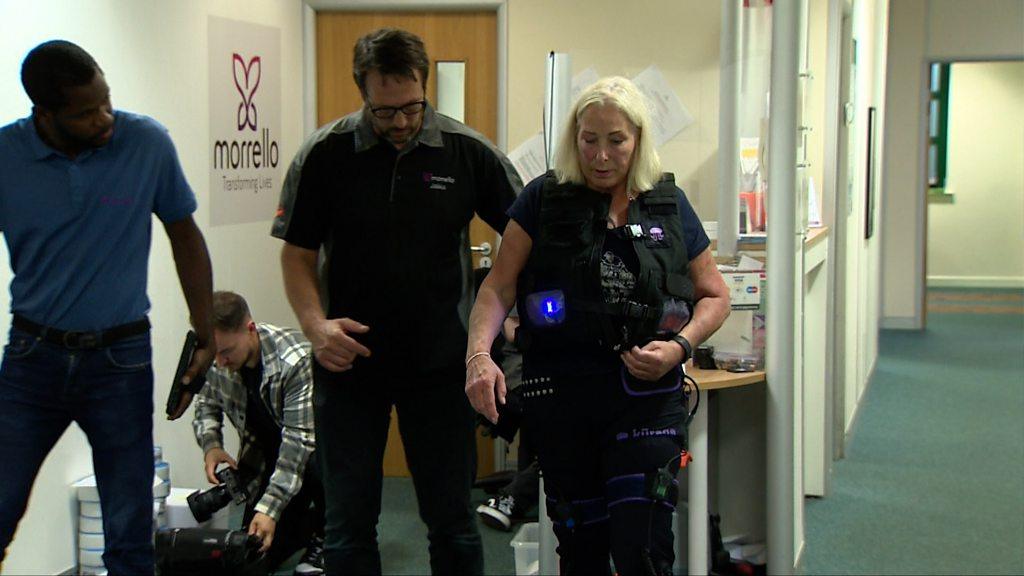Stroke patient says AI diagnosis was a 'lifeline'
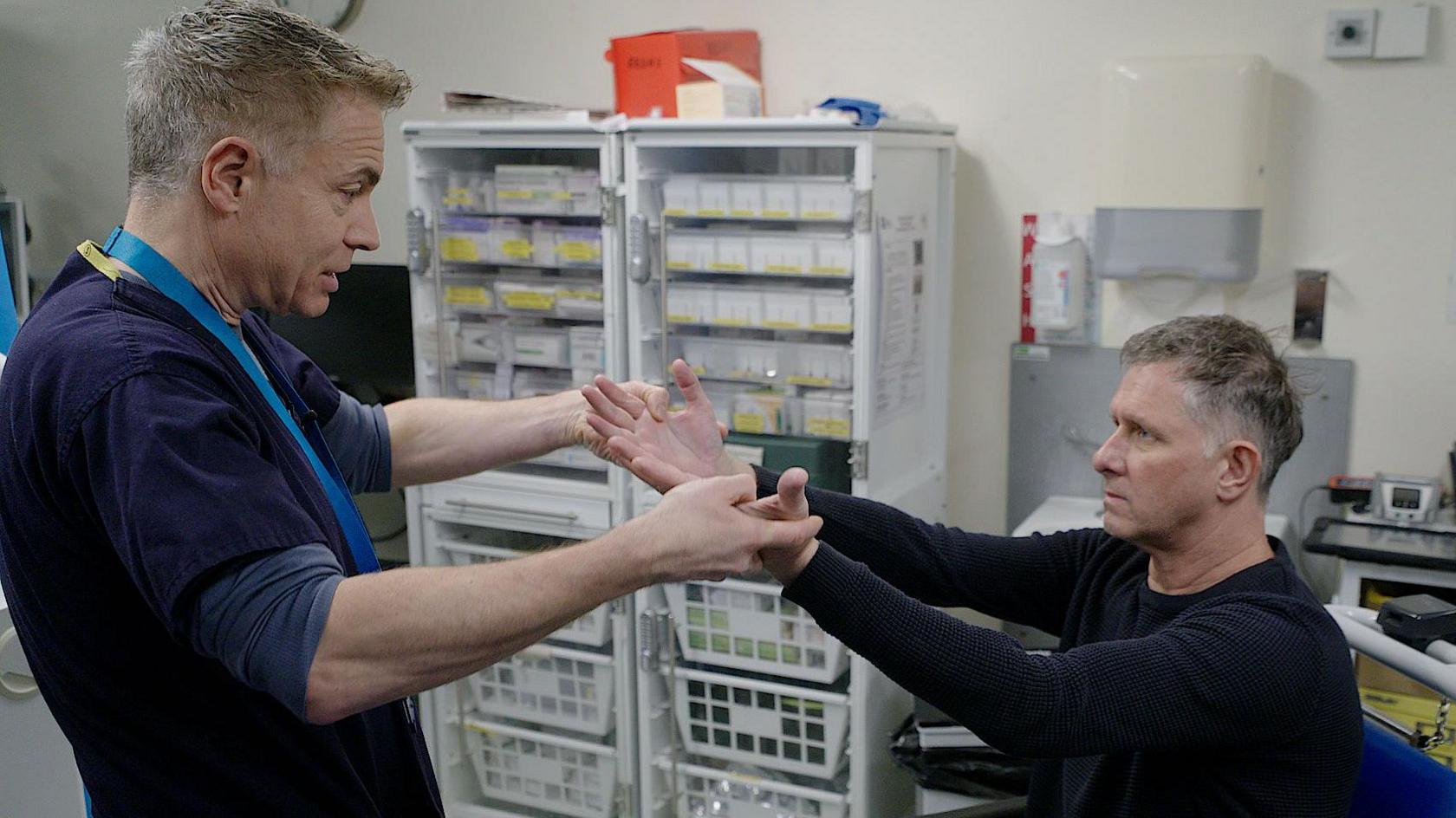
Mr Theoff (r) said he feels "lucky" to have recovered without any serious issues
- Published
A stroke patient has said the use of artificial intelligence during his hospital treatment was a "lifeline".
Shawn Theoff, a retired postman from Canterbury, suffered a stroke several years ago after returning from holiday.
"I was making a coffee and all of a sudden I was knocking things over," he said. "I couldn’t focus properly, so I knew something wasn’t right."
The 55-year-old was taken to Kent and Canterbury Hospital, where he had a brain scan which used AI decision support tools that enabled doctors to rapidly diagnose and then treat his stroke.
When someone has a stroke, it is estimated they may be losing around two million brain cells a minute, according to NHS England.
This, say medical experts, is why urgent treatment is "essential".
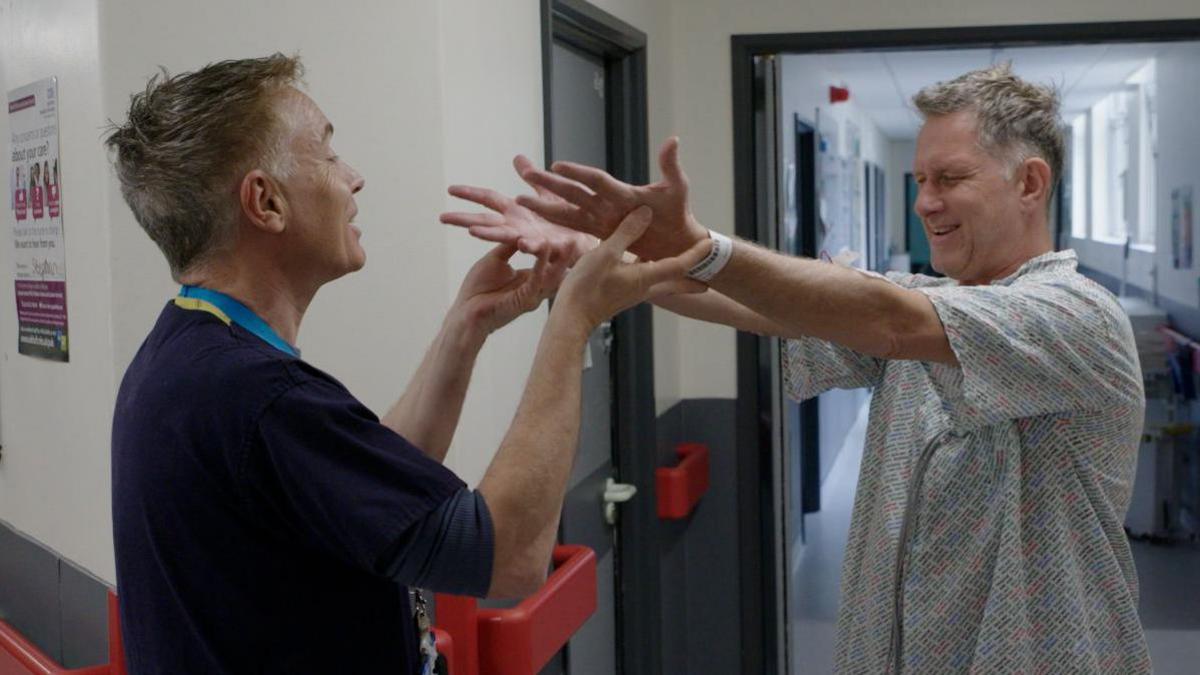
Mr Theoff was treated at Kent and Canterbury Hospital by Dr David Hargroves
Mr Theoff, who was keen runner and gym goer, features in an NHS film about the use of AI in urgent stroke treatment.
He said: "I couldn’t feel my hands and was struggling to use my phone."
He managed to contact his brother who dialled 999.
When he arrived at hospital, his speech was slurred and he could not raise his arms.
He says that because of his quick AI-enhanced treatment he was was out walking again within weeks.
"I feel so lucky," he said. "I could’ve had serious issues."
NHS England says it has rolled out the technology within stroke treatment across the county over the last few years.
Dr David Hargroves, a consultant stroke physician and national clinical director for NHS England, said AI allows rapid imaging processing and interpretation.
That reduces the time it takes between someone presenting with stroke symptoms and treatment.
AI technology has demonstrated an association with a reduction in this time period by more than 60 minutes, says NHS England.
It is correlated with a tripling in the number of stroke patients recovering with no or only slight disability from 16% to 48%.
More than 1,200 people a year in east Kent suffer from a stroke, according to the East Kent Hospitals University Trust.
Follow BBC Kent on Facebook, external, on X, external, and on Instagram, external. Send your story ideas to southeasttoday@bbc.co.uk, external or WhatsApp us on 08081 002250.
Related topics
Related stories
- Published29 September 2024
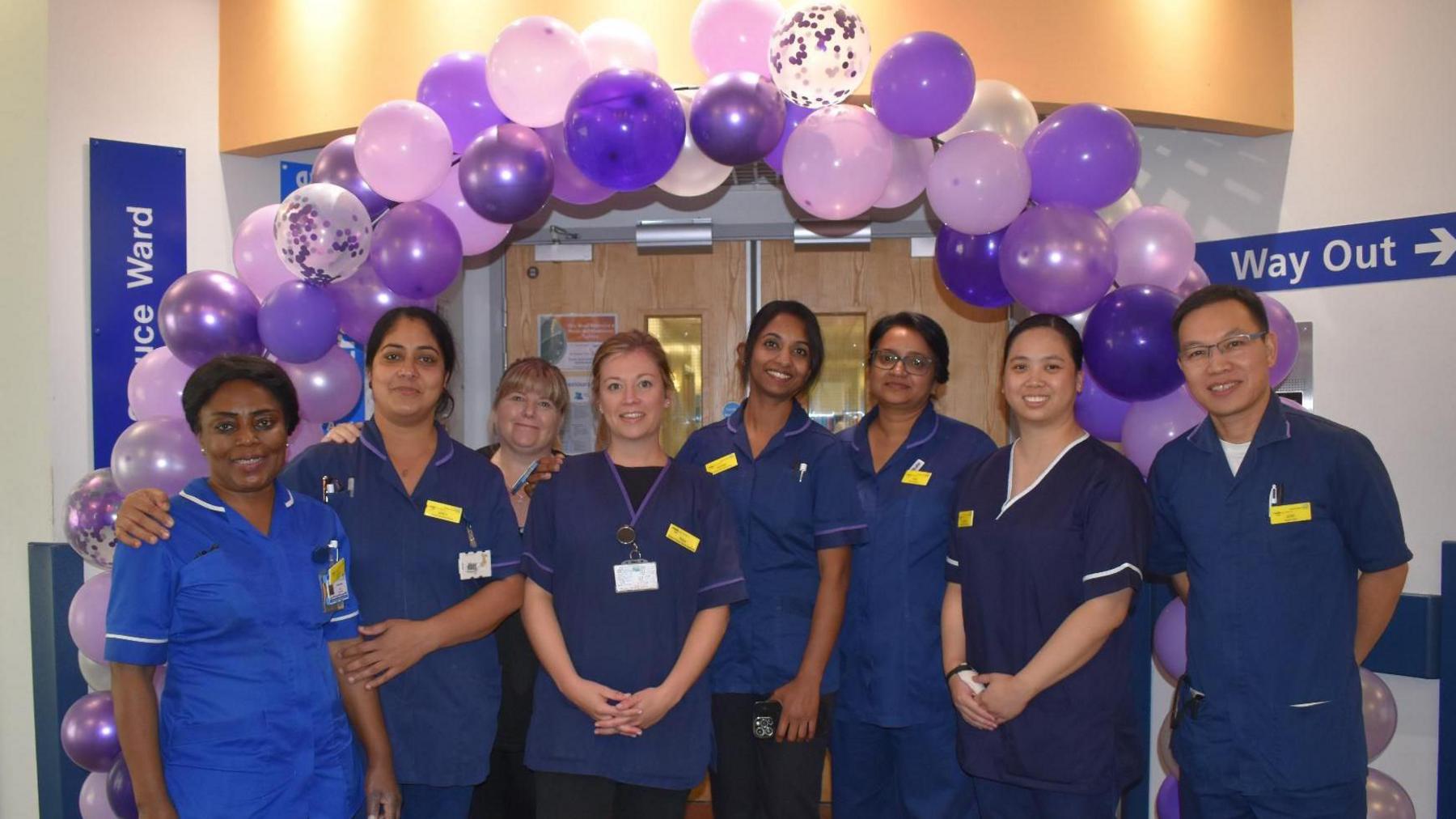
- Published24 April 2024
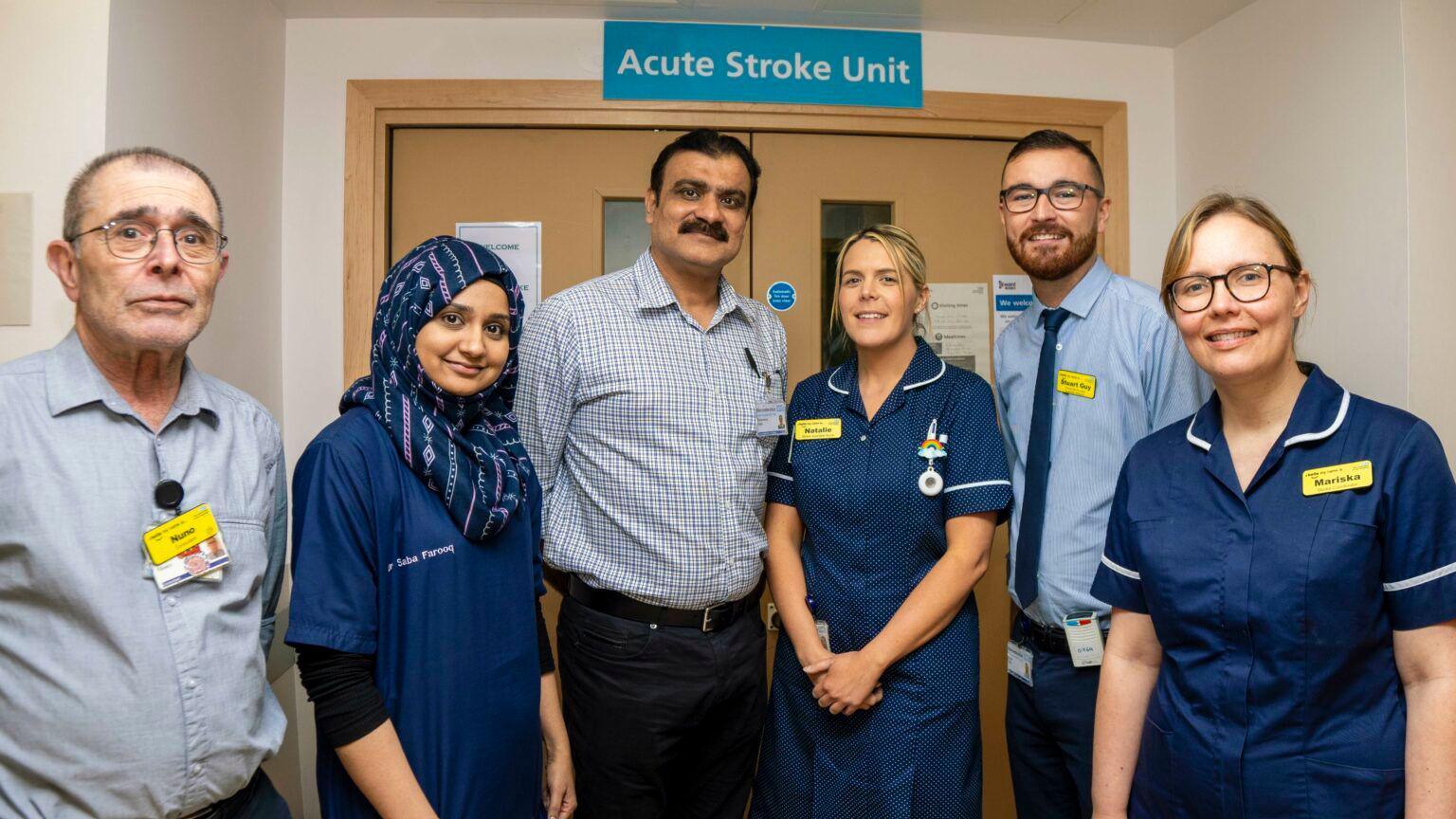
- Published15 August 2023
